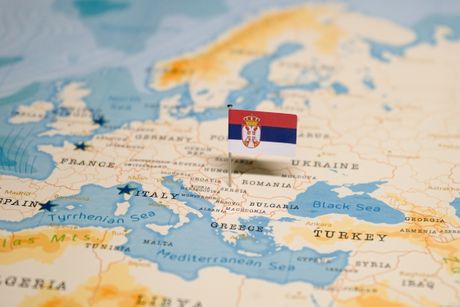"'Economic strength' doesn't exist as technical term in books": Minister Mali on Serbia's position in region

"What is economic strength? It is, first of all, a conceptual issue; that term does not exist in expert books in the sense of a clear and precise definition based on which one could think about a certain yardstick", Finance Minister Sinisa Mali wrote today on his Facebook account.
He further pointed out, "generalized assessments of the macroeconomic situation in our country are being marketed more and more often, by selectively displaying indicators, without analyzing the big picture, and relying on an unprofessional approach."
According to him, the results achieved in the last 10 years cannot be diminished, because "they have been unequivocally confirmed, both through reports from international institutions and eminent agencies' credit ratings."
"There is the so-called system of national accounts, which includes concepts such as gross domestic product, investments, consumption, export, import, etc. In the colloquial sense, the phrase economic strength is used as an intuitive category that is associated, first of all, with the nominal size of GDP."
According to Mali, Serbia accounts for more than half of total GDP in the Western Balkans, so in that sense, "it has the greatest economic, investment and consumer gravity in the region."
Admittedly, Romania stands out as a stronger economy in terms of GDP and spending power.
As for further "figures," the minister stressed that since 2015, Serbia has had a growth cycle in conditions of complete macroeconomic stability, and that during 2022, there was a net inflow of foreign direct investments (FDI) of 4.3 billion euros (7.1 percent of GDP in 2022 and 6.9 percent in 2021).
"The indicators that point to the future sustainable growth of the standard of living, apart from investments and strong export growth, are the growth of productivity and competitiveness. Sustainable growth of the standard of living is possible only by creating new jobs, not by artificially increasing salaries and pensions or a pro-cyclic fiscal policy.
No country in the region has recorded such a rapid decrease in the unemployment rate. Despite the multidimensional crisis, which has been lasting more than three years, Serbia managed to achieve a cumulative real GDP growth in the period 2020-2022, amounting to about 9 percent," writes Mali.
The ,inister titled this post on Facebook. "Statistics-driven acrobatics" - and you can read all of it HERE (in Serbian).
(Telegraf Biznis)
Video: Grad iznenadio ljude u Mačvi
Telegraf.rs zadržava sva prava nad sadržajem. Za preuzimanje sadržaja pogledajte uputstva na stranici Uslovi korišćenja.

